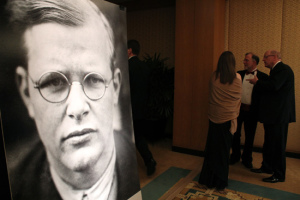The Lord’s Day

The phrase “Lord’s Day” appears only once in the New Testament in Revelation 1:10, where the particular day John is referencing is unclear. However, an early second-century letter from Ignatius, one of the first pastors of the church in Antioch, helps to solidify that the first day of the week became for Christians their primary day of worship and that they referred to it as “the Lord’s Day.”
Ignatius was a disciple of Polycarp, who was a disciple of John himself; thus, since Ignatius explicitly identifies “the Lord’s Day” as that day “on which our life as well as theirs shone forth,” John’s more ambiguous reference appears more certain to describe the first day of the week as a special, dedicated sacred day.
The Didache also states, “On every Lord’s Day—his special day—come together and break bread and give thanks,” and the early second century Epistle of Barnabas states, “Wherefore we also celebrate with gladness the eighth day in which Jesus also rose from the dead.” Similarly, Justin Martyr describes Christian gatherings as such: “And on the day called Sunday, all who live in cities or in the country gather together to one place.” Justin also presents a full explanation for why this day became significant for Christians:
We all hold this common gathering on Sunday, since it is the first day, on which God transforming darkness and matter made the universe, and Jesus Christ our Savior rose from the dead on the same day.
At the close of the second century, Tertullian (160–220) observed, “we make Sunday a day of festivity,” a day he specifically calls “the Lord’s day,” and Clement of Alexandria stated that a true Christian, “in fulfilment of the precept, according to the Gospel, keeps the Lord’s day, when he abandons an evil disposition, . . . glorifying the Lord’s resurrection in himself.”




























